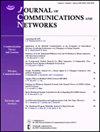Budget-feasible truthful mechanism for resource allocation and pricing in vehicle computing
IF 3.2
3区 计算机科学
Q2 COMPUTER SCIENCE, INFORMATION SYSTEMS
引用次数: 0
Abstract
Vehicle computing holds great potential to provide computation, communication, sensing, and data storage. To accelerate the application of vehicle computing, we address the problem of resource allocation and pricing in vehicle computing (PAPVC), in which the vehicle, as a resource provider, provides heterogeneous resources to serve users through access points or the internet. In our model, each user has multiple tasks of different values under budget constraints, and vehicles have different costs. We formulate the RAPVC problem in a reverse auction-based setting, where a user is regarded as an auctioneer, and the vehicles are regarded as the participants in the auction. However, the vehicle providers are self-interested, and they can submit untrue declarations to maximize the utility. Thus, we aim to design a truthfulness mechanism to maximize group efficiency. We propose a greedy mechanism to solve the PAPVC problem. We then show the proposed mechanism is truthful; that is, our proposed mechanism drives the system into an equilibrium. In addition, we show the proposed mechanism achieves individual rationality, consumer sovereignty, budget feasibility, and computation efficiency. Furthermore, we analyze the approximation ratio of the proposed approximation algorithm. Simulation results indicate that the average percent gap between solutions obtained by the proposed mechanism and optimal solutions is 22%.基于预算可行的车辆计算资源分配与定价机制
车载计算在提供计算、通信、传感和数据存储方面具有巨大潜力。为了加速车辆计算的应用,我们解决了车辆计算中的资源分配和定价问题,其中车辆作为资源提供者,通过接入点或互联网为用户提供异构资源。在我们的模型中,每个用户在预算约束下都有多个不同值的任务,车辆的成本也不同。我们在一个基于反向拍卖的环境中提出RAPVC问题,其中用户被视为拍卖商,车辆被视为拍卖的参与者。然而,车辆供应商是自私自利的,他们可以提交不真实的声明来最大化效用。因此,我们的目标是设计一个真实机制,以最大限度地提高群体效率。我们提出了一种贪心机制来解决PAPVC问题。然后,我们证明了所提出的机制是真实的;也就是说,我们提出的机制驱动系统进入平衡状态。此外,我们还证明了所提出的机制实现了个人理性、消费者主权、预算可行性和计算效率。进一步,我们分析了所提出的近似算法的近似比率。仿真结果表明,该机制得到的解与最优解之间的平均差距为22%。
本文章由计算机程序翻译,如有差异,请以英文原文为准。
求助全文
约1分钟内获得全文
求助全文
来源期刊
CiteScore
6.60
自引率
5.60%
发文量
66
审稿时长
14.4 months
期刊介绍:
The JOURNAL OF COMMUNICATIONS AND NETWORKS is published six times per year, and is committed to publishing high-quality papers that advance the state-of-the-art and practical applications of communications and information networks. Theoretical research contributions presenting new techniques, concepts, or analyses, applied contributions reporting on experiences and experiments, and tutorial expositions of permanent reference value are welcome. The subjects covered by this journal include all topics in communication theory and techniques, communication systems, and information networks. COMMUNICATION THEORY AND SYSTEMS WIRELESS COMMUNICATIONS NETWORKS AND SERVICES.

 求助内容:
求助内容: 应助结果提醒方式:
应助结果提醒方式:


